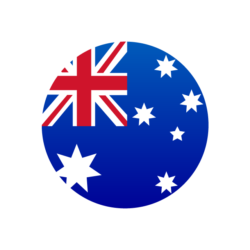
How the most important genre of Australian poetry began with the songs of escaped convicts
Bush’s ballads are the most famous and recognizable genre of Australian literature. Its origins lie in the folk poetry of the first settlers who were exiled to Australia from Great Britain from the end of the 18th century and throughout the first half of the 19th century. Australia at first was a foreign land for exiles, and their desire for freedom and comradeship inspired them:
The English word bush, from which the ballads got their name, meaning “thickets”, “forest”, acquired a new meaning in Australia: wild, undeveloped territory, and then wider – the countryside in its opposition to the city. It was in the bush that fugitive exiles were hiding, escaping from hard labor. As the colonies were settled, rebels from the settlers joined them, breaking the law. From the word “bush” they got their Australian name – bushrangers, forest robbers. In folklore, they are often represented as Australian Robin Hoods, who robbed the rich and helped the poor. The most famous bushranger was Ned Kelly: paintings by Sidney Nolan played an important role in the mythologization of his image.
In the second half of the 19th century, as the development of the continent proceeded and the generation of people for whom Australia became their home grew, the folklore tradition was continued by the poets of the Australian colonies. They praised the heroism of the pioneers:
The authors of the ballads also poeticized the daily life of the pioneer settlers – farmers who had already settled down but had to cope with the harsh conditions of the frontier. The archetypal image is the swagman hobo who goes from farm to farm with a swag roller in search of work. He is immortalized in the song-ballad “Dancer Matilda” by Andrew Barton “Banjo” Paterson (1864-1941), which at one time even claimed the role of the anthem of Australia. It contains the same theme of freedom and contempt for the authorities as in folk poetry, but the text is filled with Australian flavor and slang: for example, Matilda is the Australian name for swagman’s roll, and “waltzing with Matilda” means “pulling the roll”.
Another classic by Paterson is the ballad The Snowy River Boy, which depicts the hunt for wild horses and praises the courage and fearlessness of the colonists.



